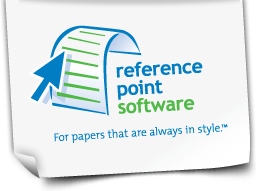Top 10 Mistakes When Writing a College Paper Using APA Formatting (Part 1)
Learning to write well is one of the most important skills you can develop in college. Not only does it hone your ability to communicate, it improves other highly marketable skills – focus, attention to detail, and decisiveness – for future employment. However, if you donΓÇÖt have much experience with writing assignments with APA formatting, itΓÇÖs easy to fall into certain traps that can derail your results and your desire to apply yourself fully to future writing assignments.
This article is split into two parts due to its length. Below are the first five common mistakes to avoid.
1. Lacking a Well-Defined Thesis
You need to include a well defined thesis – an overarching statement or point ΓÇô at the beginning of your paper. It sets up certain expectations for the reader and creates a focus for you. Without a well-defined thesis, you will increase the amount of time you dedicate to research in support of a broad topic. Your thesis must be clear and precise. Without it, you can only skim the surface on a number of issues, instead of crafting fine-tuned arguments supporting a clear statement. As a result, you will find yourself writing too much or too little as noted in the following point.
2. Writing Too Much or Too Little
When you receive your assignment from your teacher, you will be given suggested minimum and maximum page counts or a word count. These are a target range your teacher feels are appropriate for you to make your statement, address it sufficiently with supporting information, and conclude it strongly. If you exceed the suggested page count slightly, you shouldnΓÇÖt have an issue as long as your content is strong. However, if find you go beyond the limit by too much, review your paper to see if there is a way you can improve the focus and make more definitive statements. If you have trouble reaching the minimum page count, it is a likely sign that you didnΓÇÖt put enough effort into researching your topic, or you didnΓÇÖt adequately explain various ideas.
3. Not Answering the Question
While you may have some flexibility with adhering to your page count recommendations, donΓÇÖt assume the same liberty when your teacher assigns you a question to address. Teachers put thought and effort into creating their assignment; they donΓÇÖt take it lightly if you choose to make a casual connection between their question and your thesis and supporting statements.
4. Adding Fluff
Fluff, or page filler, doesnΓÇÖt serve any purpose in your college paper. If you feel like youΓÇÖve hit a wall prior to meeting the minimum page count requirement, donΓÇÖt resort to fluff. Instead, meet with your teacher for ideas on how you could further expand upon your ideas and how to identify some additional references you could use for research. APA formatting guidelines include an abstract, or summary, which makes a handy reference to keep you on track with your original ideas.
5. Letting Your Deadlines Slip
No matter how well written your paper is you can lose points for turning it late. When you write a winning college paper, you have specific steps you must take, from choosing your subject, to identifying reference sources, collecting data, creating your outline, and more. Set a timeline for your critical actions with specific dates for completion. It can be overwhelming to think of the project as a whole versus breaking it down into manageable sections. However, it is critical that you adhere to your deadlines. Once you start letting some of the early deadlines slip, you create late nights and extra stress which are counterproductive to writing well articulated statements.
In my next article, I will address the five remaining common mistakes college student writers make, like relying on your computerΓÇÖs spell-checker, not writing your own paper, and not using proper APA formatting (or even forgetting proper formatting altogether).
David Plaut
David Plaut is the founder of Reference Point Software (RPS). RPS offers a complete suite of easy-to-use formatting template products featuring MLA and APA style templates, freeing up time to focus on substance while ensuring formatting accuracy. For more information, log onto http://www.referencepointsoftware.com/ or write to:
info @ referencepointsoftware.com
Reference Point Software is not associated with, endorsed by, or affiliated with the American Psychological Association (APA) or with the Modern Language Association (MLA).
